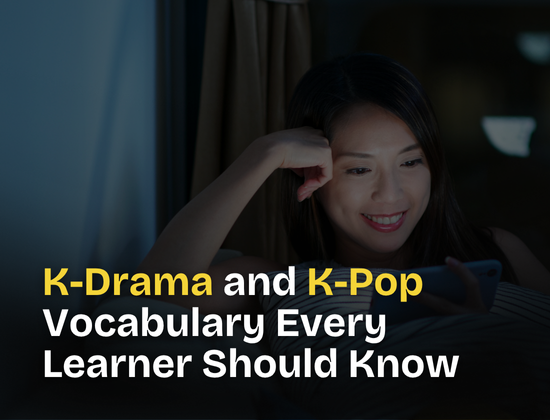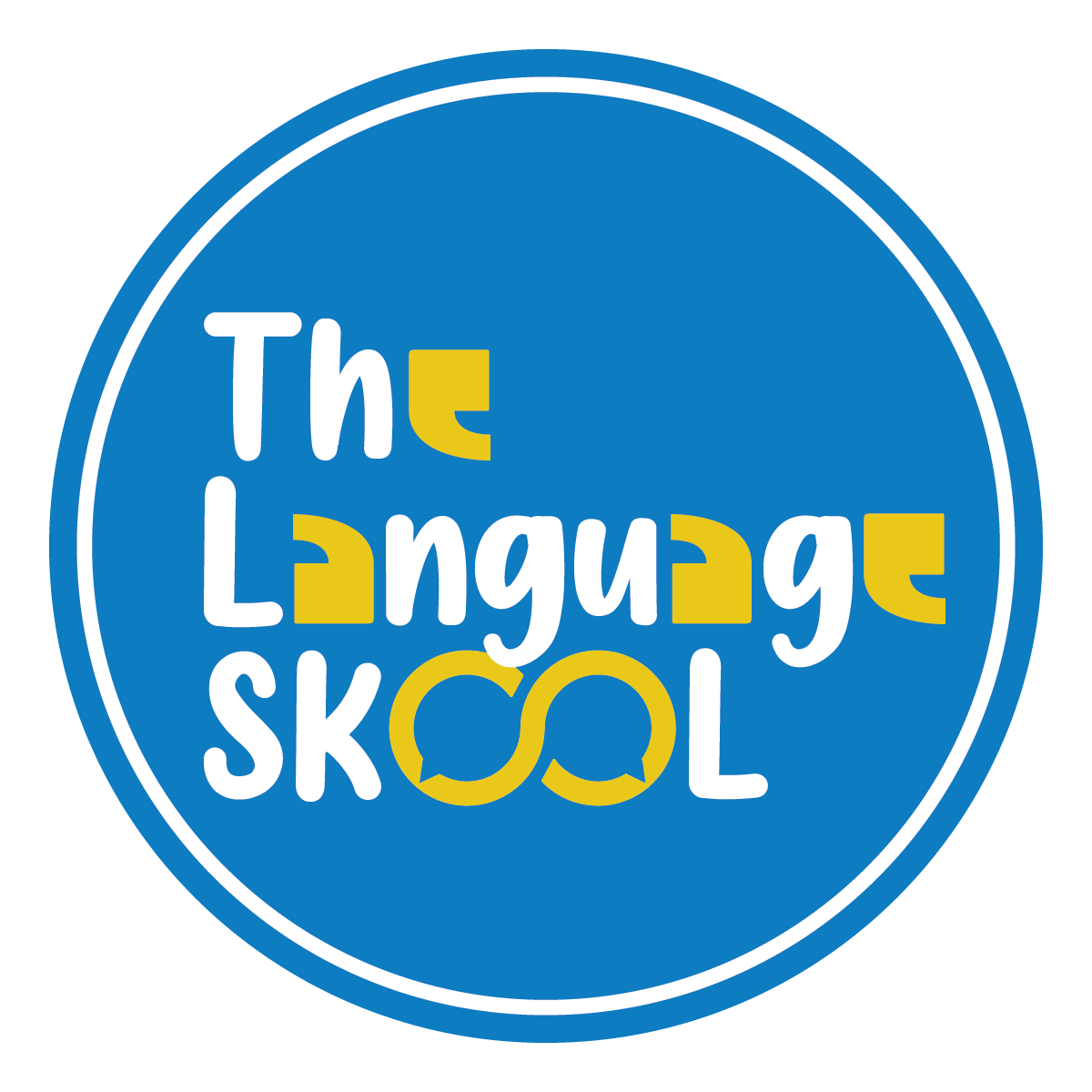
K-Drama and K-Pop Vocabulary Every Learner Should Know
If you've ever binge-watched a K-Drama or found yourself humming to BTS or BLACKPINK on loop, you've already had a taste of the Hallyu wave — Korea's cultural tsunami that's swept across the globe. But if you're learning Korean, K-Dramas and K-Pop aren't just entertainment. They're treasure troves of vocabulary, expressions, and cultural nuances that textbooks don’t always teach.
Ready to level up your Korean skills? Here's a creative, immersive vocabulary guide inspired by K-Drama and K-Pop that every learner should know.
1. 오빠 (oppa), 언니 (unnie), 형 (hyung), 누나 (noona)
These might be the most frequently used words in dramas and idol interviews. They’re how Koreans refer to older siblings or close older friends.
-
오빠: what a girl calls an older male
-
언니: what a girl calls an older female
-
형: what a boy calls an older male
-
누나: what a boy calls an older female
But it goes beyond family. These words carry affection, camaraderie, and sometimes flirtation (especially 오빠 in dramas — you’ve seen the swooning scenes!).
2. 대박! (daebak!)
A total must-know! It's the Korean equivalent of “Awesome!” or “No way!” You’ll hear idols exclaim this during variety shows or characters yelling it after a major twist. Use it when something blows your mind.
3. 아이고 (aigo)
This expression is so relatable. Think of it as a Korean "Oh no" or "Oh dear." It's used when someone is tired, frustrated, or surprised. You’ll spot this especially with K-Drama moms dramatically sighing it out mid-chaos.
4. 사랑해 (saranghae)
Love is in the air — especially in K-Dramas. 사랑해 means “I love you.” Simple. Sweet. Emotional. It has more intensity than just liking someone (좋아해, joahae), and it's the gold standard of confessions.
5. 화이팅! (hwaiting!)
A motivational battle cry. Whether it’s idols encouraging fans or students hyping each other before exams, 화이팅 is the go-to word for cheering someone on. Think: “You got this!” or “Let’s go!”
6. 진짜? (jinjja?) / 정말? (jeongmal?)
Both mean “Really?” and can be used when you're shocked, excited, or just confirming something. The tone is everything — K-Drama actors make this a dramatic art form.
7. 귀여워 (gwiyeowo)
“Kawaii” in Japanese, “cute” in English, and in Korean — 귀여워! You’ll hear idols showered with this word when doing aegyo (cute acts). Pro tip: If you want to charm your Korean friends, say this with sparkly eyes.
8. 짱 (jjang)
A slang word that means “the best” or “awesome.” If someone says “너 짱이야!” (You’re the best!), wear that crown with pride. It’s common in school-based dramas and idol fan communities.
9. 몰라 (molla)
This means “I don’t know,” but in K-Dramas, it’s also the classic pouty line, often delivered while turning away. Dramatic sigh optional but encouraged.
10. 안돼! (andwae!)
“No way!” “You can’t!” “Don’t!” Depending on the context, 안돼! can express resistance, panic, or desperation — another K-Drama favorite, especially during those edge-of-your-seat moments.
11. 미쳤어? (michyeosseo?)
“Are you crazy?” Used between friends or lovers in dramas when someone says or does something absurd — usually followed by laughter or a slap on the arm. Equal parts annoyed and amused.
12. 보고 싶어 (bogo sipeo)
Literally, “I want to see you.” But more romantically, “I miss you.” It’s a lyrical favorite in ballads and a soft, emotional line in dramas. Bonus: It melts hearts.
13. 대사 (daesa)
This means “line” — as in a movie or drama line. You’ll often hear it when actors are rehearsing or when fans quote their favorite drama scenes. Add this to your behind-the-scenes K-Drama vocabulary.
14. 팬 (paen)
Just what it sounds like — a fan! K-Pop fans use this a lot, like 팬미팅 (fan meeting) or 팬레터 (fan letter). And if you’re a superfan, you might call yourself a 덕후 (deokhu) — Korean slang for “otaku” or a hardcore enthusiast.
15. 컴백 (comeback)
Every K-Pop group lives for the comeback. It’s not about returning after a break — it means releasing a new song or album. Fans count down, stream like mad, and learn all the choreo.
Why Learning Korean Through Pop Culture Works
Language isn’t just grammar and vocabulary — it’s feeling, rhythm, and context. K-Dramas and K-Pop give learners a rich, sensory environment where words come alive through facial expressions, tone, and storytelling. You start picking up not just what people say, but how they say it and why.
Plus, the repetition of phrases across songs and shows builds memory naturally. Think of it as language immersion without a plane ticket.
Your Next Steps
Watch a drama scene without subtitles and try to catch these words. Listen to your favorite idol talk during a V-Live. Try using “daebak” the next time your friend shares good news. Make the language part of your world — just like the music and shows already are.
At The Language SKOOL, we make learning Korean fun, immersive, and totally binge-worthy. Whether you're vibing to your bias’s lyrics or decoding dramatic confessions in your favorite series, our expert-led classes help you speak, understand, and connect — just like a native fan.
Because language isn't just about words, it's about culture, rhythm, and the spark that made you fall in love with Korea in the first place.
Your Korean journey starts here — let's say annyeong to fluency together!











